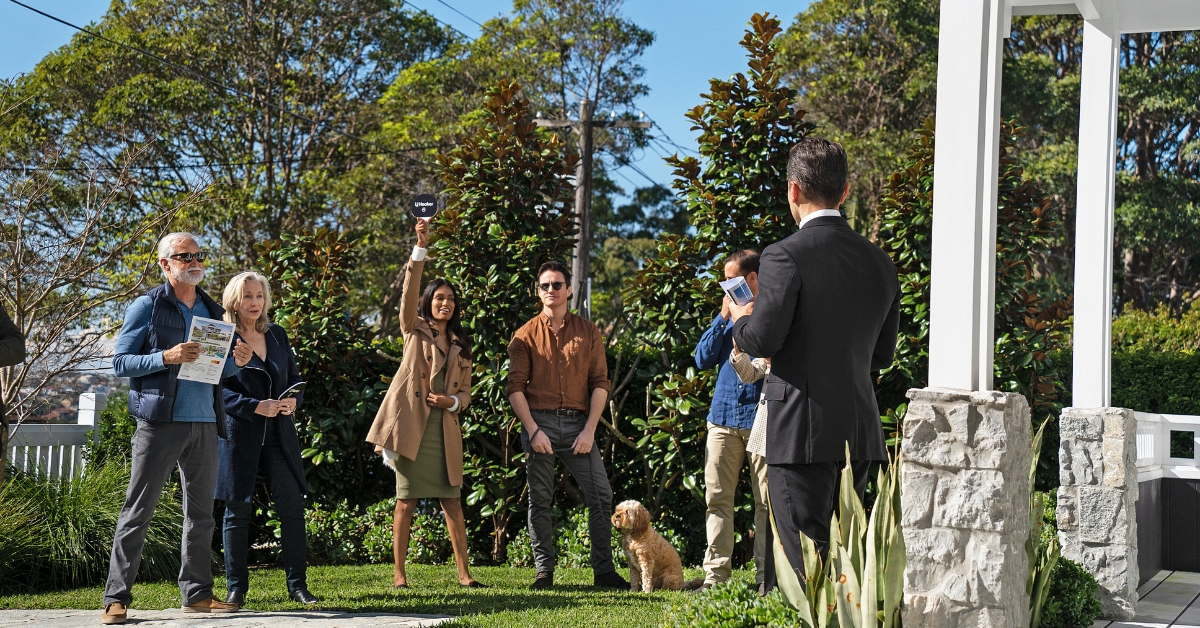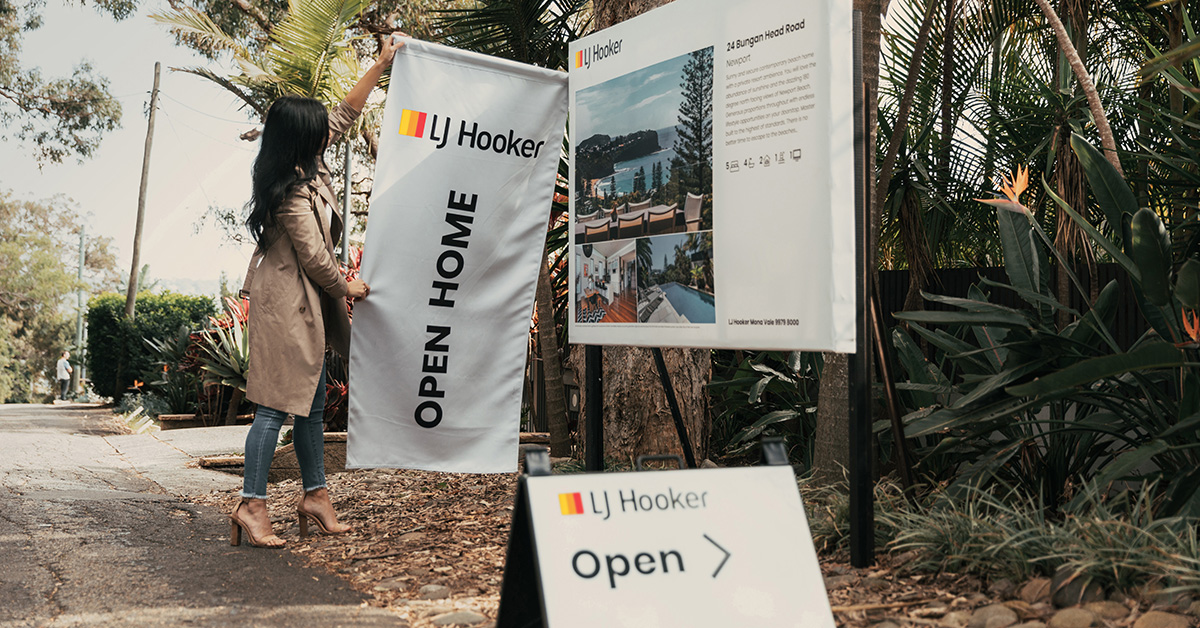Buying Real Estate at Auction

Auctions are exciting but for some can be a nerve-racking method of real estate transaction unless you understand the process. Naturally, vendors want to get the highest price from bidders outbidding each other, whereas buyers are hoping to snap up a good deal, while the selling agents are trying to get as many bidders through the door as possible. It’s an exciting process and it can be your ticket to a great property.
Several factors make auctions so enticing for Australians. The immediacy of the event means that the long house hunt can be shortened to an afternoon’s work, and there are ample opportunities for a great deal for both sellers and buyers.
The competition is clear-cut, and you are able to register and plan well in advance. The nature of auctions also means that the price is gauged by the crowd, rather than dictated by a seller across the negotiating table.
Understanding what is involved is important it is vital to do in-depth research before making moves into the auction market. To get great returns from your bidding, read on with our in-depth auction guide.
Doing your research
When you decide to buy a home at auction, you have to treat it like an exam. And that means scrubbing up and doing your study! Knowing what properties are selling for around you is a key element of being a successful auction buyer, and there are several ways you can make this happen.
Ask an agent
Speaking to your local agent is a quick and easy way to get yourself acquainted with the basics of the auction process. They can give you a clear picture of what is happening in your local market, recent auction results, local auction trends and clearance rates. They can explain the auction process, how it works, what is required and how best to prepare yourself. Agents live and breathe real estate so they are a great resource to tap into.
Attend some auctions
One of the best ways to learn the ropes is to get down and see some auctions yourself. Contact your local real estate agent to find out where the next one is happening in your area and go along to watch how it plays out.
State regulations
- Each state has different rules and regulations around property auctions. Make sure you understand the requirements for your state or territory
- Another useful place to do your research on auctions is the Real Estate Institute of Australia, or the relevant institute of your state.
- Knowledge is power, and you should take in as much as you can.
On the day of the auction: registering to bid
There are different rules in each state and territory about what you are required to do to register at an auction. For instance in New South Wales, you will be required to provide identification such as a drivers license, as well as a letter of authority if you are bidding on behalf of someone else, however each state and territory is different so it is important you know what happens in you area. Check out our state based pages for more local facts. If an agent is acting for a buyer they need to provide their license number, while anyone with power of attorney can just sign up on their own.
Once you register you’ll be given a bidding number which you will use to make bids on the property. Each bid is recorded by way of taking note of your bidders number. Don’t think that this registering lets you see the details of others in the record though - not even the seller gets a look at who has registered to try and buy.
In most states and territories, only registered bidders can be in the running for the property - latecomers may be able to get a late registration, but it’s best to be prepared. Again make sure you are aware of your state or territories rules around this.
Rules of auction
Once the auction begins, there are many rules in place that you will have to be wary of, lest you find yourself bound to a deal you aren’t happy with. The auctioneer will outline all rules before the bidding begins.
This can include their obligation to refuse bids after the hammer falls, to arbitrate bid disputes, and also to refuse bids that come from those who have not registered for the auction.
There may be more specifics depending on where the auction takes place, so check the rulings and listen carefully to the auctioneer. To find out how to buy a property in your state and territory articles read our local area articles.
What type of bidder are you?
When the bidding gets underway, you’ll find some strong auction stereotypes emerge. These are common at many auctions, and can be easily handled if you know what to expect - and you may even recognise yourself in some of these.
The high roller
These bidders tend to raise the bar early, as an intimidating factor. However, they can sell themselves short and end up paying more than they need to, or exhaust themselves early by flying too close to the sun and hitting the upper levels of their budget too soon.
The waiter
This is a ‘slow and steady’ bidder, who is unlikely to even be heard from until the closing stages. The drawback here is they enter the bidding when the level is already quite high, so may be stretching their budget with the first bid they make.
The newbie
These bidders are common, but frustrating. By laying random bids all through the auction, the newbie can be a confusing bidder that does not often succeed.
When at auction, you need to have a handle on your finances, keep a cool head and adopt traits of both the waiter and the high roller to have a good chance of victory. Luck needs to be on your side a little as well!
Understanding auction terms
If you are new to the auction process, you may come across several terms that confuse you, which is the last thing you want in the middle of a bidding war. Here are some common terms to be aware of.
Bidders guide
The bidder's guide is a document that must be provided to bidders by the selling agent before an auction. It gives information on how to register for auction and what paperwork needs to be filled out, the relevant privacy laws and the rules and regulations of the auction. Make sure to get one of these before you start to seriously plan out your bidding!
Inspection
Usually beginning about half an hour before an auction, the inspection period is important for anyone seriously considering getting in on a property at auction. It isn't just a final chance to see the property up close, it is also an opportunity to get a final look at the relevant documents for the home, such as the terms of settlement - as Consumer Affairs Victoria (CAV) says, you won't be able to change these if you win the auction.
Vendor & dummy bids
It's important to understand the term vendor bid and the difference between it and dummy bids.
Vendor bids are a single bid or bids made by the auctioneer on behalf of the seller. The purpose of this bid is to help the property achieve its reserve price.
The auctioneer is entitled to bid once on behalf of the seller, or in some states / territories as many times as they like. If this bid is to be made during the auction, the arrangements for making the bid must be set out in the rules displayed before the auctions starts and the intention to make a bid should be announced by the auctioneer at the start of the auction.
A dummy bid on the other hand is a false bid made by a non-genuine buyer. All dummy bids are illegal and attract significant penalties for the vendor (up to $20,000 in SA and up to $55,000 in NSW), the dummy bidder and in some cases the agent if it can be proved they solicited the bid.
Rises and advances
This is the amount by which bids increase during an auction and is usually dictated by the auctioneer. They could be $500 or $5000, and do not necessarily have to be adhered to - but the auctioneer can reject your bid if they think you have not advanced the bidding by enough.
Reserve
One of the most crucial terms, the reserve, is effectively the point at which the auction becomes "live". If bidding does not go over the reserve then a negotiation between the highest bidder and seller may take place. This may continue for hours or days but usually a contract on the property is signed reasonably soon after the auction itself. However, once bidding goes over a reserve price the property is on the market and a winning bid is binding, so make sure you don't over-extend your budget or get carried away in the heat of the moment.
On the market & passed in
During the course of the auction, the auctioneer may stop the proceedings and say they are seeking advice or instruction from the vendor. This gives the auctioneer time to discuss the progress of bidding with the vendor.
If the bidding has reached the reserve price, or is close, the auctioneer will ask the seller if they are willing to adjust their reserve and sell the property for the highest price. If they are, the auctioneer will announce to the crowd that the property is on the market or rather that it will be sold to the highest bidder.
If the bidding does not reach the reserve price or a price the seller is happy with, the property may be passed in. In this case the highest bidder may be given the first opportunity to negotiate a sale with the seller however this is not legislation in most states.
What to do when your bid is successful
If you emerged victorious in the bidding battles, and saw the price surpass the reserve, then congratulations - you have bought a property at auction!
Normally, immediately after the auction you will be required to sign the contract, and provide the 10 per cent deposit.
This is why we want you to make sure your finances are in order - in Australia, there is no cooling-off period. Once you buy, you’re locked into the deal.
Once you have signed a contract it will be deemed that you have an equitable interest in the property and you should immediately take out insurance.
What to do when a property passes in
Of course, not every auction has a happy ending under the hammer. Sometimes bidding doesn’t get above the reserve, whether because of a high price set by the seller or some cautious bidding on the buyers’ end. Sometimes, no-one has made a bid at all!
Whatever the reason, when this happens the property is passed in, and does not sell. This is not uncommon.
Power play
While this result may seem disappointing, if you were the highest bidder before the auction ceased you are given the first opportunity to negotiate on the property, however other would be buyers can also compete for the property so make sure you are realistic with your offer. Vendors have usually become educated to the market during the process and can be more realistic with their expectations around price and conditions.
How to put in a pre-auction bid
If you’re impatient to get your foot in the door on a property, why wait until auction day? You can make a pre-auction bid to get a home before the bidding opens. Just make sure you do it right and try to remove any emotions from the process.
These steps will make your offer straight to the point, and this shows the seller that you mean business.
- Make your pre-auction offer in writing.
- Have a contract and deposit cheque ready.
- Set a time limit.
Making a pre-auction offer is often about getting the house you absolutely want, so let the seller know you’re in this for the long run.
Make sure the price is right
Don’t jump in with an offer that is miles below the vendor expectations, as it isn’t likely to be taken seriously. In fact, it may even make the seller reluctant to work with you.
Making sure you have done your research is your best weapon when it comes to negotiation. Knowing the market, the value of the property you are looking at and what your best offer would be is very important.
Once you know all this, make an offer that is realistic - don't be scared to put your best offer in as it may mean the difference between walking away with the property or not. Also remember that working for a quick purchase can mean the trade-off is in the cost, so be wary of your budge and if the prices is too high be prepared to walk away.
Get your timing right
By waiting until close to the auction date before pre-offering, sellers and agents will have a concrete idea of the interest in a property. Agents will not disclose offers to you as a buyer but may disclose what offers the vendors refused to accept. You can use this to your advantage and undercut the competition with an eleventh hour bid, and secure a great home.
On the other hand, early research and offers can get you a home before anyone else can do their homework properly.
Pre-auction offers can trigger other parties to give up early, or spark an early bidding war. Done correctly, you can cut out the competition and swoop in on a property with ease.
DISCLAIMER - The information provided is for guidance and informational purposes only and does not replace independent business, legal and financial advice which we strongly recommend. Whilst the information is considered true and correct at the date of publication, changes in circumstances after the time of publication may impact the accuracy of the information provided. LJ Hooker will not accept responsibility or liability for any reliance on the blog information, including but not limited to, the accuracy, currency or completeness of any information or links.



